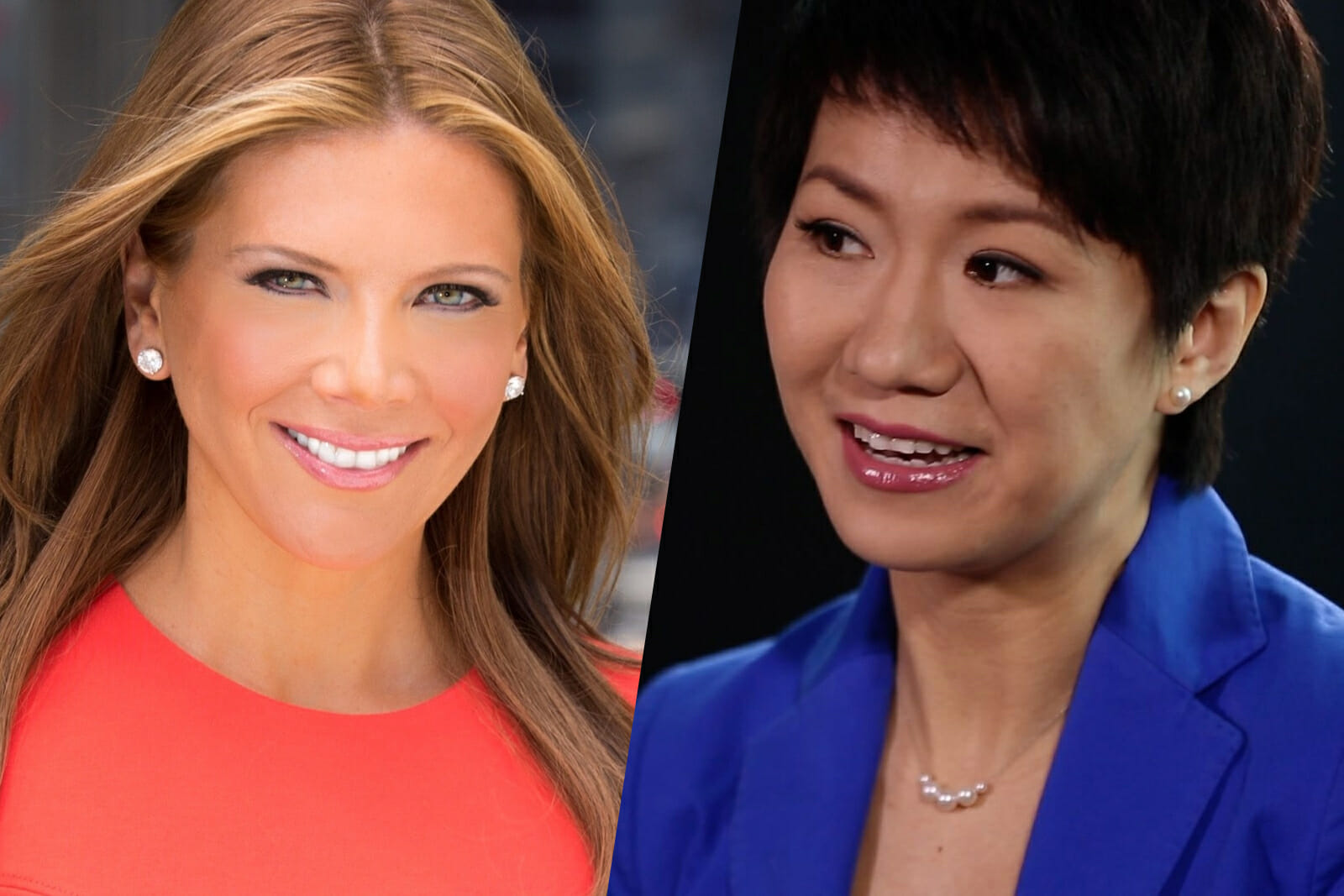
A Dialogue of the Deaf: Fundamental Incompatibilities in the Regan-Liu Face-Off
In Politics, Aristotle argued that “man is by nature a political animal.” While controversies surrounding this ancient quote abound, one can readily apply the saying to this Wednesday’s trade discussion between Fox’s Trish Regan and CGTN’s Liu Xin. Each side embarked on this much-anticipated face-off with clarifications of no party affiliations but nonetheless reflected politics: Regan’s raw MAGA politics with no regard for trade economics was met by Liu’s top-down multilateralism turning a blind eye to trade politics. The end result? A debate in which the two sides spoke in parallel channels, energizing two vastly different constituencies while solving few confusions around the thorny issue of international trade.
Treating the debate as an interrogative interview characteristic of Trumpian unilateralism, the Fox Business host spanned a wide range of topics from national development to political liberty on the 16-minute show. There was lots of smoke screen yet little substance on the intended subject of U.S.-China trade. Basing her arguments of crude numbers on China’s alleged intellectual property theft and state dominance, Regan implicitly assumed a vigilante role of circumventing WTO’s well-established dispute settlement mechanism and reducing economic nuances to a zero-sum game.
Wrong but effective! Her micro-aggressions are indicative of a large coalition that have fueled the U.S.-launched trade war, the so-called “losers” of international trade: politically powerful labor unions protecting workers as a collective factor of production, import-competing manufacturers, and domestic politicians logrolling special interests. Previously, such anti-trade sentiments were offset by the executive branch in pursuit of win-win trade outcomes beyond narrow self-interest. Presently, they are encapsulated by an eccentric president with mercantilist tendencies, emboldening Regan and her likes. A 2018 Pew Research survey finds that 37% of Americans (58% of Republicans and 22% of Democrats) were still in favor of the U.S. raising tariffs on steel and aluminum. Albeit a descending trend compared with the onset of Trump’s trade skirmishes with China in 2016, societal disapproval at a proportion of approximately 121 million people is by no means insignificant.
Most importantly, Regan’s tough position and the ensuing sense of victimhood reveal a deep level of dissatisfaction rooted in a uniquely American vision that pegs economic growth to political openness. This doomed postwar project of Pax Americana, along the line of the obsolete modernization theories, has been consistently crushed by the realities of what Steve Bannon grimly depicts as a “barbaric, totalitarian regime” led by the CCP. Regan seems to have borrowed much of her talking points from the one-dimensional Bannon piece and they should both be rightfully frustrated.
Even modernization revisionists like Adam Przeworski are pessimistic about the likelihood of democracy in economies that have reached a per capita income level of $6,000 (in China, it was $16,7000 in 2017 after purchasing power parity is adjusted). Not to mention exogenous factors of culture, party organization, and political institutions, all of which add to Americans’ implicit yet growing fury with the Chinese state. For Regan, Bannon, and other hardliners, it is difficult to let go of the things that you have no control over (in this case, the CCP’s resilience in the face of four decades of “reform and opening up”) when economic connectedness has run deep between the two countries.
Leading up to the face-off, Liu Xin criticized Trish Regan for “weaponizing” U.S.-China trade relations and for not treating China as an equal partner. Representing the neoliberal basis of the international trade system, Liu’s remarks during the face-off got the economics right and aligned with the CCP’s long-held position on trade being an equalizer, a win-win situation, and an essentially multilateral matter. Liu was assertive, graciously eloquent, and sophisticated. But she too fell for three normative trappings, spoon-fed by the CCP through subtle indoctrination.
First, Liu dismisses the role of emotions in trade politics: cultural underpinnings and misperceptions matter as much as, if not more than, cold economics. You can cite quantitative evidence against a trade war left and right but are unlikely to win a single vote from American conservatives who take her fact-checking as a blatant attack on Trish Regan and the free world. Second, Liu is at best unwilling to look at the influences of electoral politics in the U.S. While insisting that China is a market economy with Chinese characteristics and private Chinese companies herald its global initiatives, she forgot that such a textbook narrative is insufficient to persuade an average Fox Business viewer and was counterproductive. Most fundamentally, she dangerously ignored a powerful hypothesis of development that economic openness is underpinned by inclusive political processes. Her witty responses, in an eerie resemblance of CCP’s pro-nationalist rhetoric and its official elitist attitude, ran counter to political inclusiveness and showcased the Chinese state’s unprecedented hold over the media without the latter even realizing the degree of thought control. Circling back to trade, Liu’s state-centered stance lacks explicit micro-foundations and complexities of interest and culture: unlike the CCP, it is improbable for the U.S. government to simply stand above societal interests.
Disappointedly but expectedly, the Regan-Liu dialogue serves little in advancing broad U.S.-China trade conversations or the broader issue of international economic integration. It was a dialogue of the deaf, grounded in an overarching structure of a political trilemma. Coined by political economist Dani Rodrik, the trilemma implies the inescapable incompatibilities of an integrated world economy, powerful nation-states, and democratic politics. No country can accomplish the three goals simultaneously. The postwar economic order of trade liberalization was maintained through nation states’ controls over capital flows and collapsed when the Bretton Woods system broke down in the early 1970s. Today, the two world hegemons are inevitably trapped in the quagmire, with the U.S. aiming for the last two goals and China for the first two.
The deadlock is beyond the scope of a televised debate.
